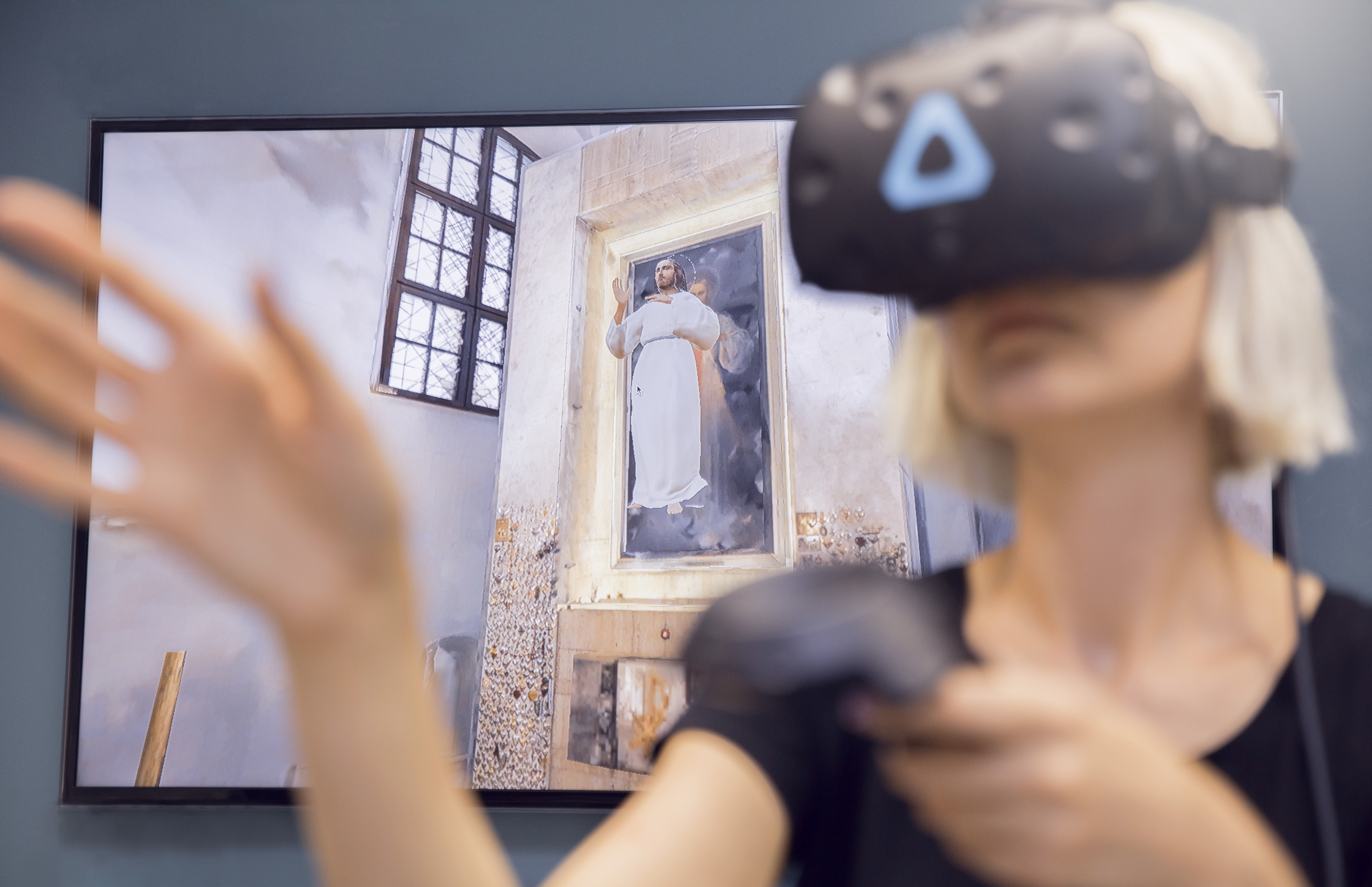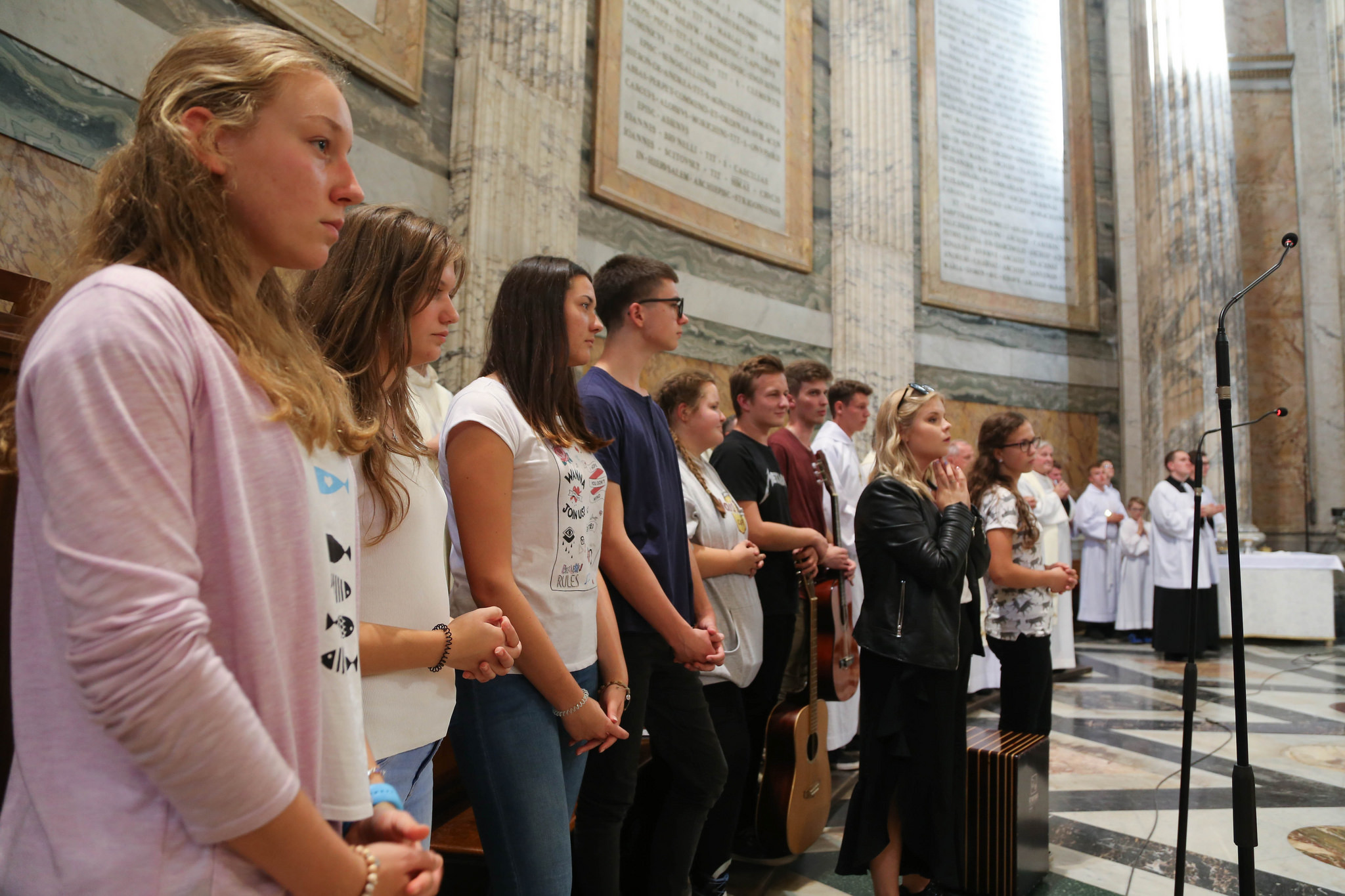As the Synod of Bishops takes place nearby, on 17 October, the BBC World Service is coming to Rome to ask how young people want their Church to engage with them. In what way should the Church accompany them? What does vocation and discernment mean to them? In other words, how is the Church still relevant to young people?
I grew up in the Catholic Church. I never had the courage, neither did I receive any encouragement, to question the doctrines or traditions of the Church, or to ask if I felt represented or included. We went, as a family, every Sunday morning to Mass.
I engaged with the sacraments; confession, first communion, confirmation, almost by rote, but there was no engagement with young people by the church - although as a teenager I was allowed the privilege of a reading at Mass, something previously only experienced through the class Mass at school. Stations of the Cross was exciting, a chance to move and get out of the pew, to feel involved. Same for the offering – although carrying the Chalice was certainly nerve wracking. All those eyes on me. What if I trip?
It’s now many years since I was an anxious teenager trying not to fidget in the pew. I’ve changed, but how has the Church changed? Pope Francis appears to usher in a new era of transparency and inclusion, with some followers of the faith asking whether he will go so far as to change doctrine. Whether that will happen we don’t know, but this month in Rome the Synod of Bishops is taking place and they are discussing Young People, the Faith and Vocational Discernment. There’s a lot to discuss. Their briefing paper, Instrumentum laboris, is 75 pages long. “It is important that you speak; do not let yourselves be silenced”, Pope Francis told young people in Chile last year. The BBC World Service is giving young people the chance to speak, to use their voice on global platform.
In March the Church brought together some 300 young people from all over the world, from Iraq to Brazil and beyond, with 15,000 more contributing on social media for a pre-meeting. The Vatican released an online questionnaire to 16-29 year olds globally. Those young people created a conversation, raising issues such as human sexuality, church leadership, the role of women and the digital life of young people. 36 young people have been invited back to the Synod, which will be held in private.
What inspires hope and admiration is the young people themselves – some of whom I have been fortunate enough to speak to. A wide range of views exists between each young person from one side of the globe to the other. One thing unites them and that is passion for their faith and love for their Church. They want to grow with it; they want it to grow with them. Some call for change, some call for clarification and a shoring up of tradition. Some call for recognition of LGBT rights and some talk of the hurt of being excluded from church hierarchy based on gender. The Church should be heartened because I hear how engaged young people are with the Catholic faith. It is the people, not the buildings, I am told, that will preserve the faith, but perhaps not without change. I hope the Bishops truly listen to these young people – the kind of young people I needed as role models as a teenager. These are the people who will inspire the next generation of Catholicism.
As a producer with the BBC World Service I hope to add to the discussion with young people by recording a programme that will be broadcast globally. BBC World Service English has a weekly reach of 79 million people around the world. We will include all those who want to contribute, especially those who cannot be in Rome, by using social media. This is one of a special of series of programmes from the BBC World Service, Heart and Soul Gathering, where we listen to communities in discussion about their faith. We seek light and understanding and we seek to listen.
You can join the conversation on 17 October by registering for a free ticket here or through social media at heartandsoul@bbc.co.uk or by using #bbcheartandsoul.
Louise Clarke-Rowbotham is a producer for BBC Radio 4 and the BBC World Service and lecturer at Staffordshire University



 Loading ...
Loading ...
What do you think?
You can post as a subscriber user ...
User comments (0)